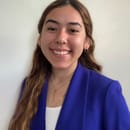When I stumbled on TikTok’s #BookTok community, I reignited a passion within myself. As a kid, I would escape into fantasy, mystery and adventure books whenever I came home from school. The sun would rise and set again while I finished multiple books at a time in one sitting. By the time I got to high school, I was rarely reading any books that weren’t required coursework. While my past obsession was always in the back of my mind, I never felt like I had enough time to pick up the hobby again. Thanks to the booktok hashtag, I was able to connect with other readers who were rekindling their relationship with reading. As someone who’s grown to love classics over the years, I naturally gravitated towards these recommendations in the hashtag. It was almost instantly that I realized popular classic literature has a diversity issue.
What is a classic?
The definition of a classic is difficult to pinpoint. Writers such as Mark Twain and Italo Cavino struggled to come to a concise answer. Generally, classic books are pieces with significant cultural value and a lasting influence on society. The Western literary canon confines the idea of classic literature because public schools and higher education institutions uphold Western classic books. The Western literary canon includes European literature equated with high culture and deemed essential reading. Authors within the Western canon include William Shakespeare, Dante, Homer, Jane Austen and George Orwell. While the Western literary canon has produced incredibly important work, viewing the Western canon as the sole grounds for classic literature excludes Black, Latinx and Indigenous literary contributions.
It’s important to divert from Eurocentric ideals and recognize the BIPOC pioneers that have shaped literature over the ages. When we only focus on white authors as the pinnacle of literature, we risk equating whiteness as culturally superior. All communities deserve to feel celebrated, respected and embraced within conversations of societal contributions. Whether you want to expand your “to be read” list or learn about more diverse literature, here are the five classics you should check out.
100 Años de Soledad by Gabriel García Márquez
Written by Colombian novelist Gabriel García Márquez in 1967, “100 Años de Soledad” is often cited as a must-read book by publishing houses such as Penguin Books. The novel features the multi-generational story of the Buendía family within the imaginary city of Macondo. The book is one of the most prominent examples of the magical realism genre, and the themes within the book have led to widespread success. The novel came out during the Latin-American literary boom of the 60s and 70s. Considered by many critics as Garcia Marquez’s magnum opus, it has been translated into 46 languages and sold worldwide.
Beloved by Toni Morrison
Toni Morrison’s “Beloved” achieved critical acclaim just a year after it was published. Morrison received the Pulitzer Prize for Fiction in 1988 for the novel, and “Beloved” has since been recognized by the New York Times as one of the best pieces of fiction. The book follows the story of a formerly enslaved family and their haunted home in Cincinnati. The book is inspired by the real story of Margaret Garner, an enslaved person who escaped from Kentucky to the free state of Ohio. Due to fugitive slave laws, U.S. marshals captured her while she was barricaded in her cabin with her family. Garner had killed her daughter and attempted to kill her other children to prevent them from being taken back into slavery. The book handles themes such as the psychological effects of slavery, family relationships, mother-daughter relationships and pain.
The Time of the Hero by Mario Vargas Llosa
Set in the Leoncio Prado Military Academy in Lima, Mario Vargas Llosa’s novel recounts his own experiences within the school and focuses on the transition to manhood for young boys. The novel received backlash from the academy, which considered it propaganda, yet it led to Vargas receiving a Nobel Prize 50 years after its publication. The book is known for its experimental storytelling and use of multiple, nonlinear perspectives. It dissects many layers of Peruvian society within the confines of the academy, such as hierarchy, secrecy and masculinity as well.
Parable of the Sower by Octavia Butler
Octavia Butler’s science fiction novel “Parable of the Sower” was recognized by the New York Times as the most notable book of 1993. The novel is the first of an unfinished series and tackles themes of climate change and social inequality. It follows the story of Lauren Olamina as she travels north in hopes of achieving freedom and meets different people along the way. The novel’s apocalyptic nature can be seen through her upbringing in a gated community shielded from anarchy and her religion, Earthseed, which states that humanity is destined to inhabit other planets. The themes of fear and hope provide insight on racial justice, climate crisis and the struggle which many communities face to make these issues heard.
Season of Migration to the North by Tayib Saleh
Published in 1966, “Season of Migration to the North ” is Sudanese novelist Tayib Saleh’s most known novel. The postcolonial novel is centered around the impact of British colonialism on African society and Sudanese cultural identity. It is a historical account of European colonialism within Sudan and how it transmits within the modern conflicts in the country. It has received various literary awards and has been translated in over 20 languages. It was recognized as a turning point within postcolonial literature and is one of the most important Arab novels of all time.
While this is not an exhaustive list of all the classic literature BIPOC authors have penned, this serves as a starting point to explore other books. Many of the artists are part of larger literary movements such as the Hispanic literary canon or the African diaspora literature, which are noteworthy dives. When we begin to diversify our reads, we truly see the great literary contributions that make global societies rich and unique.


